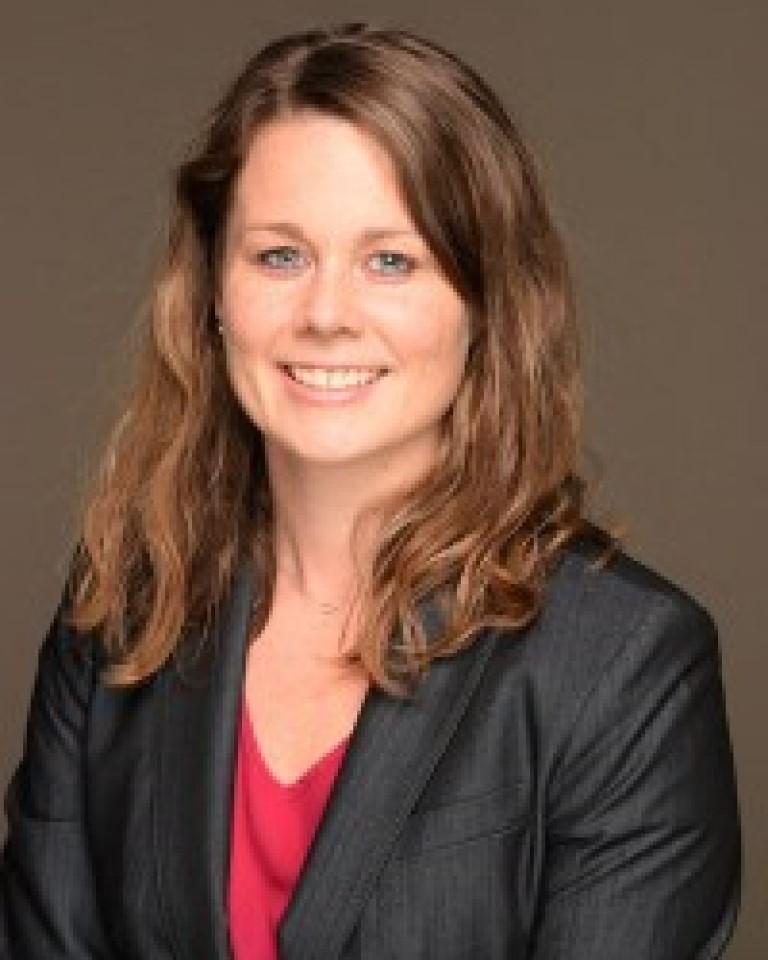Jenny Robinson

MENTOR SPOTLIGHT | APRIL 2019
Department: Chemical Engineering
Describe your work in a few sentences that we can all understand: I am fascinated with the body’s innate ability to heal and to learn why there are conditions when tissues do not heal. In my lab, we look at what sex hormones, including estrogen, do to help tissues, including bone and cartilage, heal and remain healthy. We are interested in doing this because women experience more injury, worse healing outcomes, and more degenerative disease than men, suggesting fluctuating levels of estrogen play a role. Estrogen also plays a role in male tissues. For example, girls and boys stop growing after puberty partly because estrogen causes the bones to stop growing. We then design scaffolding, similar to the idea of scaffolding used to build and repair buildings, that tell cells to make new, healthy tissue using the cues from the sex hormones.
Q: How did you first get interested in doing research or creative work?
A: I always knew I wanted to work in the area of tissue engineering; however, I had no clue what that would look like or what “research” entailed when I started college. My sophomore year, I realized many of my friends were doing undergraduate research and I thought it would be good to get involved and see what this was all about. I was able to find a position in Dr. Tony Mikos’ tissue engineering lab on campus. Lucky for me, Dr. Mikos is a world leader in biomaterials and tissue engineering and I was able to learn so much in his lab. This experience directed my career path.
Q: What do students in your discipline learn by doing research that they wouldn’t learn by just taking classes?
A: Grit, discovery, confidence in pursuing your research questions, hands-on research, iterative design process, working with clinicians to develop designs and studies that address a pressing clinical need.
Q: What do you find to be the most exciting part of doing research or creative work? What makes this line of work meaningful and interesting to you?
A: I love pursuing questions that no one yet has – or using new tools and methodologies to do so. No question is too crazy. It is an awesome feeling to have the ability to pursue a unique question that a company may not find as interesting or important – and to do it with a team of passionate students, researchers from different expertise, and clinicians. The most meaningful part of this job is mentoring and teaching. It’s amazing to see students progress and take ownership of their projects and educational experience – and to see them teaching other students.
Q: What advice do you have for undergraduates interested in doing research in your field?
A: Get started as soon as possible. It takes time to familiarize yourself with the theory and techniques. In tissue engineering, we work at the interface of stem cell/cell biology, material science, and engineering. As such, there are a relatively large number of skills, characterization techniques, and analytical methods that are needed to complete the studies and analysis. Plus, there is a lot of literature to digest to ensure the projects are answering unknown questions.
Q: For many students, doing research or a larger creative project is the first time they have done work that routinely involves setbacks and the need to troubleshoot problems. Can you tell us about a time that your research didn’t go as expected? Or about any tricks or habits that you’ve developed to help you stay resilient in the face of obstacles?
A: There are too many times to list – research is 99% troubleshooting and optimizing and 1% usable results. However, you definitely develop tools to digest and process the setbacks. For example, you learn to setup small, initial scouting studies to yield early evidence that may suggest if the study is going to work and provide details for additional studies. You also start to normalize your experience with that of others at the same training level and realize everyone is going through similar experiences. I often tell my trainees that it’s tough because we don’t know the answers, but that’s the exciting part of research. We’re exploring the unknown and are able to dream and then act on the “what ifs”!
Q: How do you spend your time outside of work?
A: Prior to having kids, I played soccer, crocheted, read fiction, and enjoyed trying new foods and cooking. Now with two young kids, I spend my time reading children’s books, playing at the park, and trying to get some sleep!